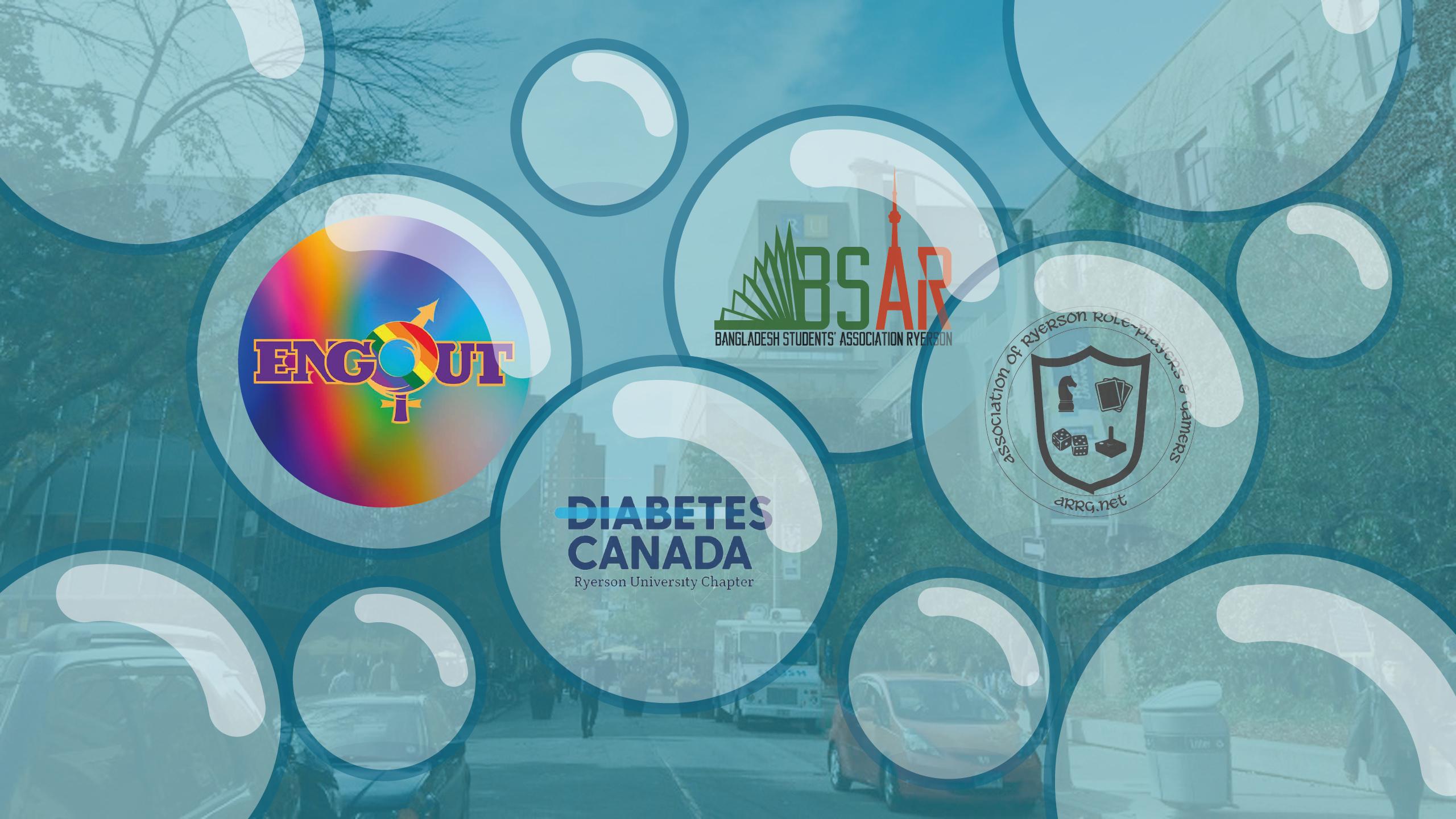By Edward Djan
Since Ryerson’s decision to move classes and non-essential campus activities online, campus groups have been finding new ways to stay connected with their members during the pandemic.
EngOut, a student group at Ryerson meant to provide an inclusive space to LGBTQ2IA+ engineering students, has experienced a boost in the number of people joining the club since the start of the pandemic.
The group created a Discord server in the fall for their members. EngOut vice-president Jerome Rodriguez said the server allowed for potentially closeted members of the LGBTQ2IA+ community to join the group for the first time because of the option to remain anonymous.
“We know that not everyone is comfortable with putting their name in [the Discord server],” Rodriguez said. “We can provide a safe space for someone to engage with other members of the community, but not necessarily have to give up their identity.”
Rodriguez points to both EngOut’s consistent social media presence and the flexibility of attending virtual events such as game, movie and trivia nights anywhere for the increase in members.
Rodriguez said he thinks EngOut has grown a lot since the group moved events online due to the pandemic.
“A lot of the things that we did were really to just stay active online and try different platforms to keep engagement growing,” said Rodriguez. “I feel like a lot of [members] typically have to go home right away after classes. That’s why I found that online events, because of the convenience, had bigger attendance numbers.”
“The online format…The feeling tends to be a lot less engaging than playing a game and watching someone’s face light up as you roll the dice”
But while some groups have been experiencing a boost in membership because of their virtual format, the Association of Ryerson Role-Players and Gamers (ARRG) is struggling to even keep their existing members of about 30 people.
Since the group’s activities revolve around board games, it’s been a challenge to organize events, according to ARRG president Kate Ng.
“With games like Dungeons and Dragons, our number of members and attendees has dropped by at least half; we’ve barely gotten the winter semester going because of how poor the autumn turnout was,” said Ng, adding that lockdown and safety measures preventing social gatherings in Ontario make it impossible for members to “sit down at a cafe [and] pull out some board games.”
“The online format isn’t really the ARRG experience. The feeling tends to be a lot less engaging than playing a game and watching someone’s face light up as you roll the dice.”
Spokesperson for Diabetes Canada at Ryerson (DCR), Esther Deng, also said virtual events lack the personal connection experienced on campus, making it hard for her members to form connections.
“That name on a screen can’t really resemble the body language or meeting someone face to face, shaking their hand,” Deng said.
But instead of letting the new virtual format hinder members from interacting, the group used the internet to bring in guests from around the world.
“We had different companies, associations, [and] organizations come in. That way it still had that feeling where it’s kind of normal but just done online,” said Deng. The group has also noticed an increase in participants more people during zoom meetings than in previous in-person events.
“Every single thing we’ve been doing is not as big as an in-person event, but I’m just happy to see the turnout”
For Bangladesh Students’ Association Ryerson (BSAR), COVID-19 resulted in them scrapping most of their winter 2020 events. The group used the fall 2020 term to figure out how they would continue during the pandemic, according to its president Farin Faruk.
“Because of the pandemic, in-person events were not possible. It was a bit challenging, we had to think about how we can host events virtually because we were still not used to Zoom or Google Meets or other virtual platforms,” said Faruk.
Faruk added that traditional events such as BSAR’S flagship event, Leelabali, where members are able to attend a mock Bengali wedding, was cancelled because “it’s really not possible to do those [traditional events] virtually.”
BSAR took advantage of its new normal to change long-standing traditions within the group.
“I’ve been in this club for three years now, but the first few years I think we haven’t really thought about introducing a new event or introducing a new tradition,”said Faruk.
“We did a fundraising event back in June for a food bank and we did a social media giveaway from a restaurant from where we used to cater,” said Faruk. “We were like, ‘let us try to bring the food to people in some way we can.’”
According to Faruk, the changes resulted in higher participation among their general members.
“Every single thing we’ve been doing [is] not as big as an in-person event, but I’m just happy to see the turnout,” said Faruk. “All these things I don’t think would have happened if this pandemic wasn’t there.”
Ng is hoping for the pandemic to end, so club events could go back to normal.
“Our entire plan is hinging that the pandemic will one day go under control, until then we’re just sitting tight and hoping that our members are safe.”













Leave a Reply